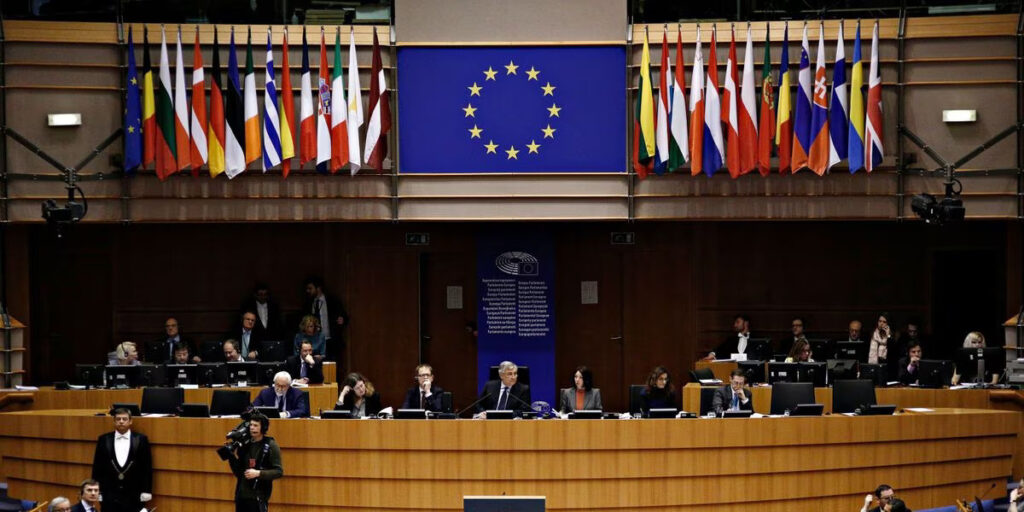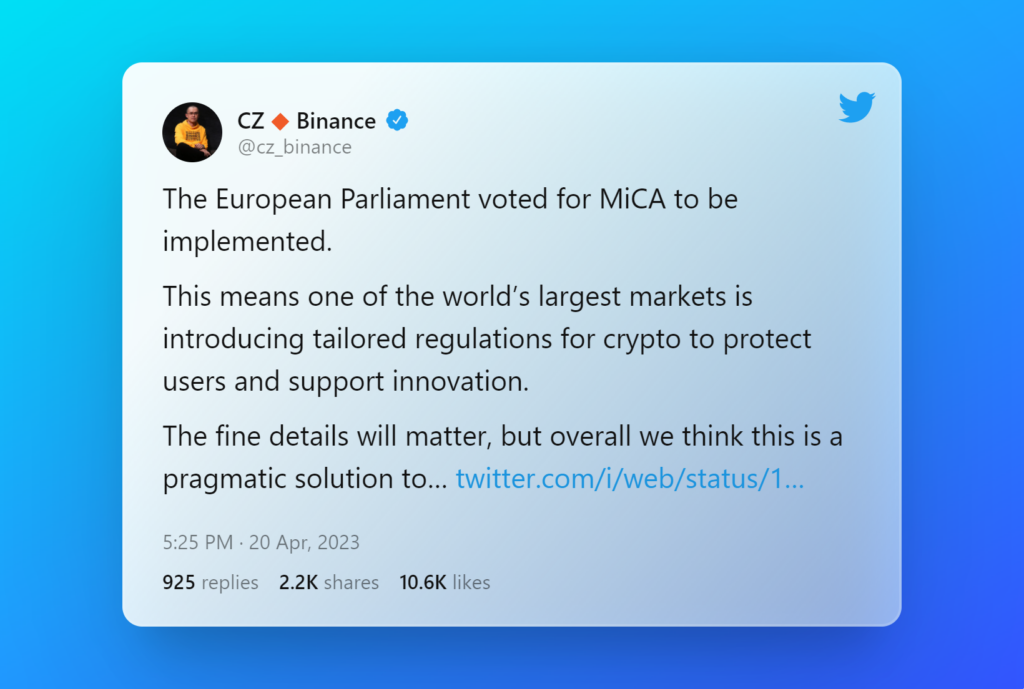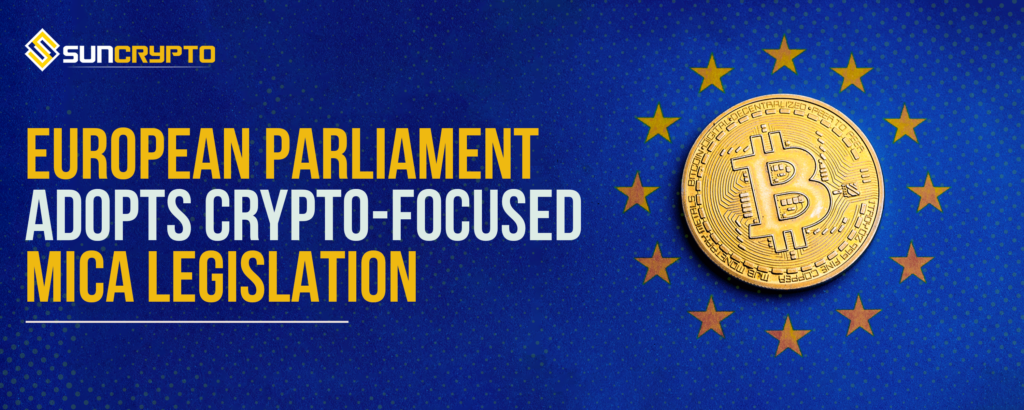The European Parliament has finally approved the Markets in Crypto-Assets Act or MiCA Regulations, which allows the European Union to regulate the cryptocurrency industry.
Following the approval of the long-delayed MiCA Law, the European Union will be empowered to regulate the cryptocurrency sector in its fight against money laundering and terrorism financing. The bill was approved by a vote of 517-38.
EU Passes MiCA Regulations
After two subsequent delays, the European Parliament conducted the final vote on the Markets in Crypto-Assets Act, also known as MiCA, on April 20. The bill now requires approval from the European Council before it can become a recognized regulation.

On the development, Stefan Berger, a spokesperson for the European People’s Party, shared his views. He said, “The MiCA law provides regulatory certainty to the European crypto-asset industry, which countries like the United States do not have.”
All About the MiCA Regulations
MiCA establishes exchange registration regulations as well as transparency rules for new cryptocurrencies before they are listed on exchanges. Firms registered in one of the EU’s 27 member states are free to operate in any EU territory.
Furthermore, MiCA also requires new cryptocurrency issuers to produce a white paper on the project. To that end, the European Banking Authority and the European Securities and Markets Authority will monitor the compliance of crypto platforms.
As part of its anti-money laundering efforts, MiCA also specifies connections between EU and non-EU-based cryptocurrency companies. As a result, the government also plans to modify the Financial Action Task Force’s Travel Rule. This legislation, known as the Transfer of Funds Regulation, compels crypto exchanges to identify both endpoints of a crypto transfer.
The bill is scheduled for a final vote in the EU Council on May 16. It will then be published in the European Union’s Official Journal and enacted in July. Meanwhile, cryptocurrency companies will have one to two years to comply with the rules. Moreover, the modified Travel Rule will be implemented by the EU in January 2025.
MiCA Bill Receives Both Praise & Criticism
Industry participants have applauded the new crypto regulations while admitting that compliance will be difficult.
Binance CEO Changpeng Zhao praised MiCA, describing it as “a logical solution to the difficulties we all face. We are prepared to make changes to our business over the next 12-18 months in order to achieve full compliance.”

Apart from Binance, Coinbase’s vice president for business development, Nana Murugesan, also shared his views. He said that the company would use MiCA to implement a “pan-European block strategy” rather than pursuing licenses in numerous states.
Coinbase recently received a license from the Bermuda Monetary Authority. And praising the regulatory environment for its “high level of rigor, transparency, compliance, and cooperation.” Its CEO, Brian Armstrong, identified the United Kingdom as a nation with a proactive approach to digital assets.
In contrast, MiCA critics claim that the bill would not have averted the 2022 crypto crashes. According to Elizabeth McCaul, an ECB board member, the bill would not have listed FTX and Binance as notable cryptocurrency service providers.
Elizabeth stated that updates must consider trade volume and assets held by an entire crypto conglomerate rather than a single local organization. In addition, MiCA shadow representative Ernest Urtasan said that EU lawmakers must finish MiCA with further measures to meet “important regulatory challenges.”
Apart from that, the cryptocurrency market responded unfavorably to this development. The largest cryptocurrency by market cap has declined by more than 6% in the last two days. And at the time of writing, the price of BTC is trading at ₹23,21,400.
Conclusion
The approval of the Markets in Crypto-Assets Act (MiCA) by the European Parliament represents a significant step towards the regulation of the cryptocurrency industry in the European Union.
The new regulations will help combat money laundering and terrorism financing in the European Union region. By establishing compliance measures for new cryptocurrency issuers. Meanwhile, some critics argue that the bill may not have averted the 2022 crypto crashes. But the industry has generally welcomed the new regulations, which will provide regulatory certainty to the European crypto-asset industry.
To know more about the European Union’s MiCA Regulations, go check out SunCrypto Academy.
Disclaimer: Crypto products and NFTs are unregulated and can be highly risky. There may be no regulatory recourse for any loss from such transactions. All content provided is for informational purposes only, and shall not be relied upon as financial/investment advice. Opinions shared, if any, are only shared for information and education purposes. Although the best efforts have been made to ensure all information is accurate and up to date, occasionally unintended errors or misprints may occur. We recommend you to please do your own research or consult an expert before making any investment decision. You may write to us at [email protected].





